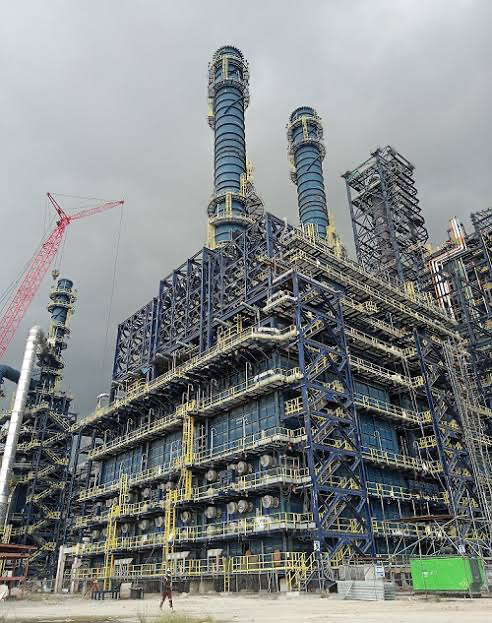Africa’s richest man, Aliko Dangote, has revealed that his refinery has obtained a licence to refine more than 300,000 barrels of Nigerian crude oil per day and will begin to produce petrol “soon”. The refinery, which is expected to be the largest in Africa, has been delayed by several factors, including the COVID-19 pandemic, supply chain disruptions, and regulatory issues.
Dangote said in an interview in Riyadh on Saturday that he wanted to start his refinery with Nigerian crude, rather than importing it from abroad. He said he was “more than ready” and that Nigerians would see his petrol products “soon”. He did not give a specific date for the start of production but said the refinery’s first priority was to supply petrol to Nigeria before exporting to other regions, including West Africa.
The refinery, located in Lagos, has a capacity of 650,000 barrels per day and is expected to produce 27 million litres of diesel, 11 million litres of kerosene, and 9 million litres of jet fuel. It will also produce polypropylene, a raw material for plastics, and fertiliser. The refinery is part of Dangote’s $19 billion investment in the oil and gas sector, which also includes a pipeline and a fertiliser plant.
The refinery has received crude oil from other producers in Nigeria, as well as the state-owned Nigerian National Petroleum Company Limited (NNPCL), which has allocated its crude to the refinery in line with a $3 billion crude oil-for-loan deal with the African Export-Import Bank. The refinery’s executive director, Devakumar Edwin, confirmed that the refinery had imported crude oil, with its first cargo expected in two weeks.
The refinery’s licence to process Nigerian crude is a boost for the country’s oil industry, which has been struggling with low production, pipeline vandalism, crude theft, and environmental challenges. Nigeria’s oil output reached 1.49 million barrels per day in October, the highest in nearly two years, according to the Nigerian Upstream Petroleum Regulatory Commission. The country has also launched a new grade of crude, Nembe, through a joint venture between NNPCL and Aiteo Eastern E&P Co. Ltd, to increase its oil production.
However, Nigeria is still far from meeting its 1.7 million barrels per day quota from the Organization of Petroleum Exporting Countries (OPEC), which has been reduced to 1.38 million barrels per day due to the COVID-19 pandemic. The country also faces competition from other African producers, such as Angola, Ghana, and Senegal, which have attracted more foreign investment and exploration activities.
The refinery’s licence is also a sign of the positive impact of the Petroleum Industry Act (PIA) of 2021, which was enacted in August to reform the oil and gas sector and attract more investment. The PIA has created a new framework for the regulation, taxation, and governance of the sector, as well as a new fund for the development of the oil-rich Niger Delta region.
The PIA has been welcomed by many stakeholders, including Dangote, who said it would create a level playing field for all operators and investors in the sector. He also said it would help to reduce the importation of refined products, which costs the country billions of dollars every year.
The Dangote refinery is seen as a game-changer for Nigeria’s economy, which relies heavily on oil revenues. The refinery is expected to create thousands of jobs, reduce fuel subsidies, increase government revenues, and improve the country’s energy security. It is also expected to boost Nigeria’s regional and global influence, as it will be able to supply refined products to other African countries and beyond.
Source: Business Day



